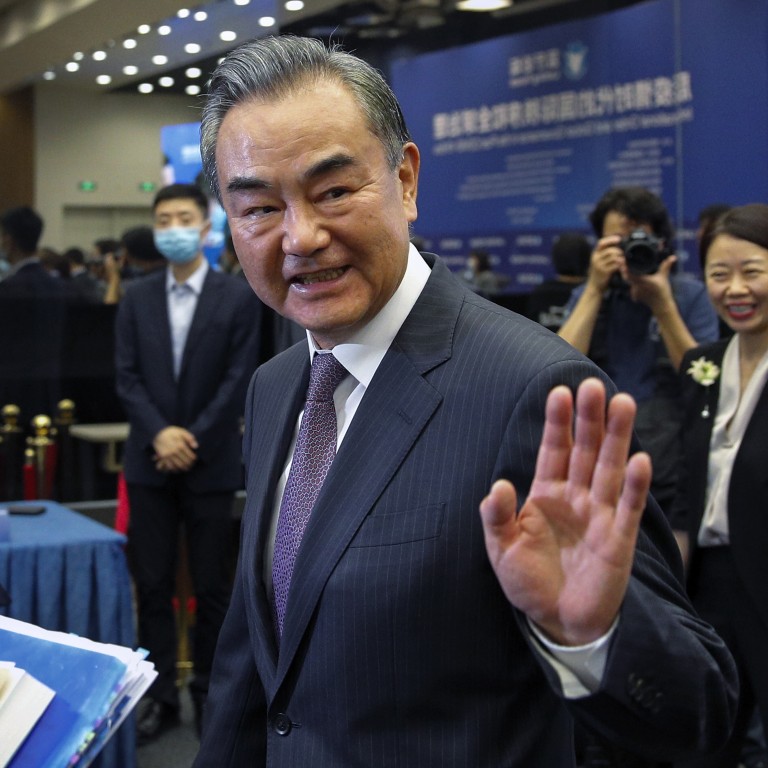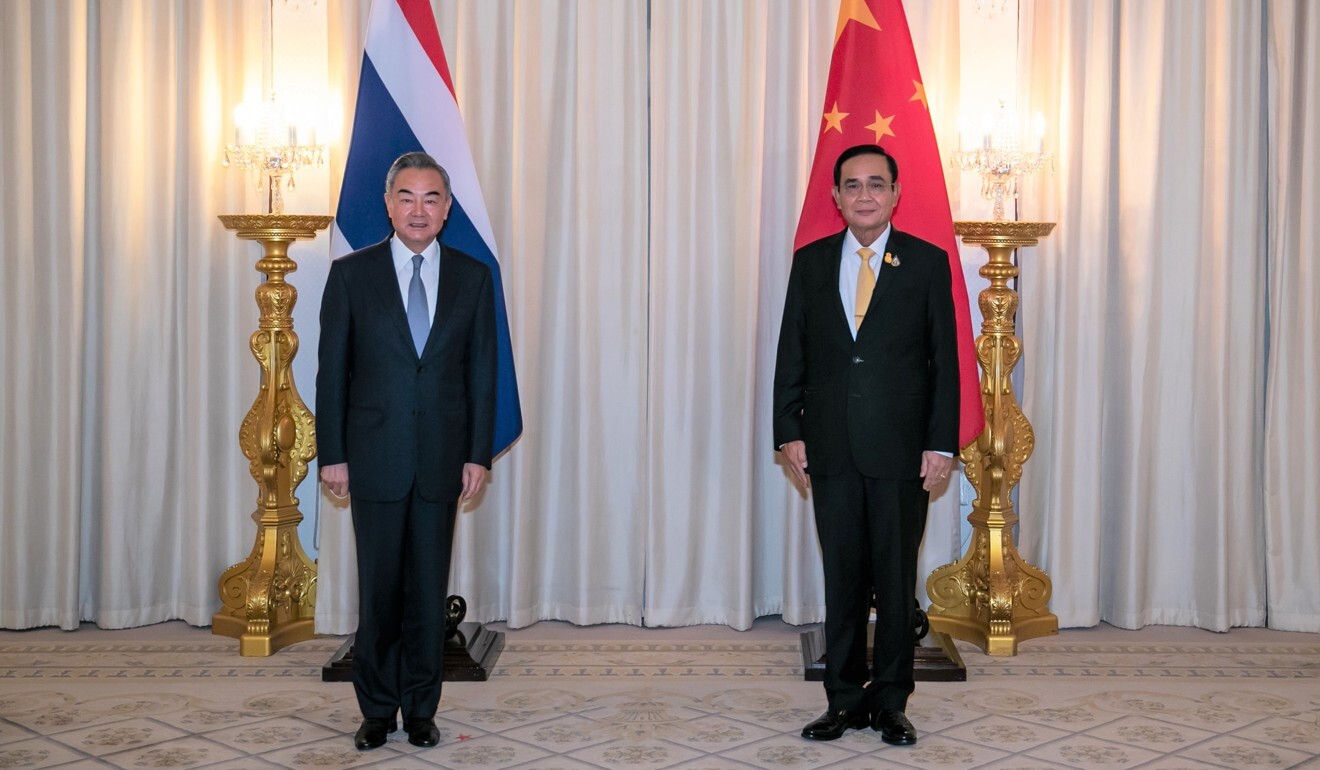
US-led Quad a ‘huge security risk’ to Asia, Chinese foreign minister tells Asean
- Strategic bloc set to become an ‘Indo-Pacific Nato’, Wang Yi says on regional charm offensive
- Quad’s aim is to ‘stir up confrontation among different groups … to maintain the dominance and hegemonic system of the US’, he says

“[The aim of the Quad] is to trumpet the old-fashioned Cold War mentality to stir up confrontation among different groups and blocs and to stoke geopolitical competition, in a bid to maintain the dominance and hegemonic system of the US,” he was quoted as saying.
“It will undoubtedly damage Asean centrality and undermine regional peace and stability, contravening the common, long-term interests of regional countries.”
Explainer | US aircraft carriers in the South China Sea and why they anger Beijing
Wang’s tour came as the US has intensified its efforts to woo countries in a bid to build an international coalition to counter China’s expanding influence in the region amid tensions over the South China Sea.
Washington unveiled a new partnership last month with five Southeast Asian countries along the Mekong River, trying to lure Cambodia, Laos, Myanmar, Thailand and Vietnam away from China with economic and other forms of aid.

While Southeast Asian nations have generally welcomed Washington’s pivot to the region and its regional security role as tensions have soared between China and the US in the South China Sea, they are more cautious when it comes to the Quad, which Beijing has billed as an anti-China front line.
He said China’s position that “the South China Sea should not become a sea for great powers to play games or for gunboats to overrun in the face of foreign forces stirring up trouble and creating tension” was generally recognised by regional countries, according to Xinhua.
Analysts say Wang’s and Suga’s trips illustrate the importance of Southeast Asia in the superpower rivalry between China and the US and its allies.
“Southeast Asia is the focal point of the deepening geopolitical rivalry,” said Xu Liping, an expert from the Institute of Asia-Pacific Studies at the Chinese Academy of Social Sciences.
“China has to react and respond when the US tries to pull countries into its orbit, a move set to dilute Asean’s central role in the regional architecture,” he said, adding that China had no ambitions to seek dominance or other geopolitical agenda.
Asean leaders ‘wary of putting all eggs in China’s basket’
As China and the US battled for regional influence, Asean countries would inevitably be left in a dilemma that would make it difficult for them to reach consensus on how to deal with an increasingly assertive Beijing, Xu said.
“The timing of Suga’s visit is perfect”, he said in an article in the Japanese Times newspaper on Thursday, considering Japan’s desire to “strengthen ties with countries in the region amid growing tensions between its main security ally, the United States, and its biggest trading partner, China.”

